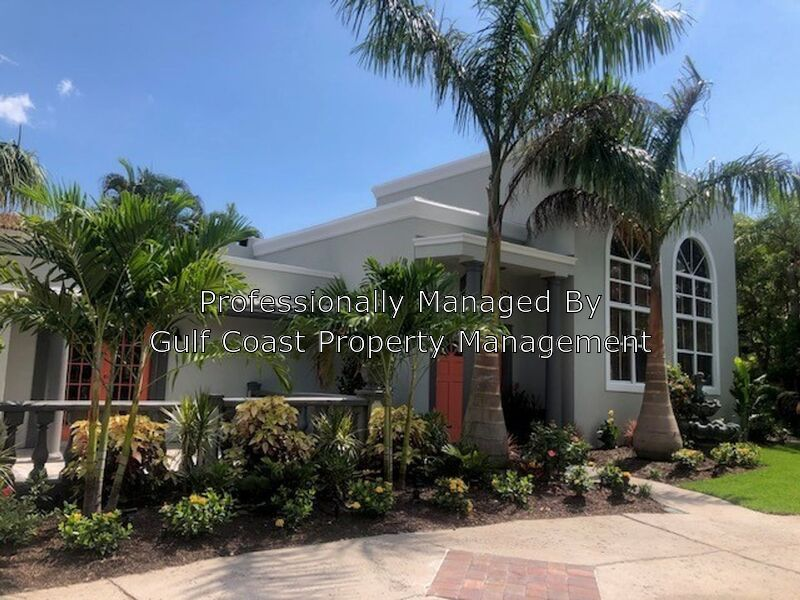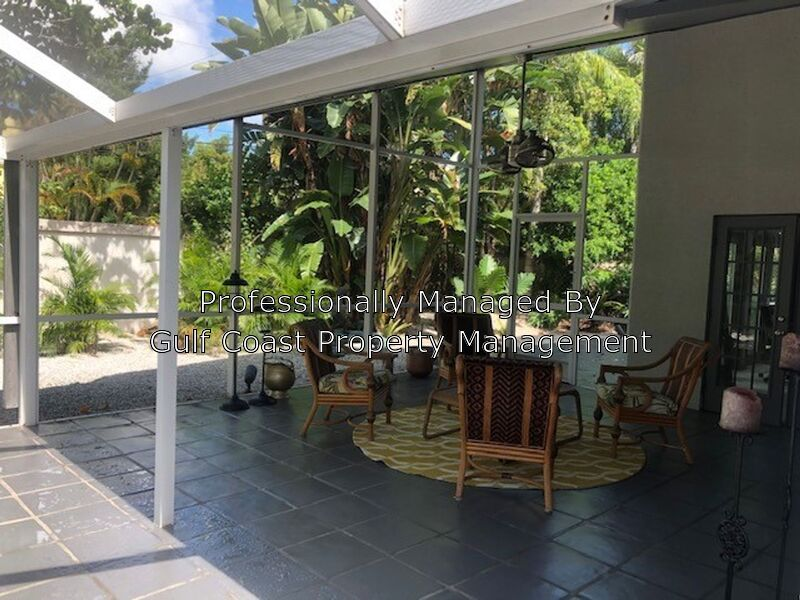Whether your property is in Port Charlotte or Punta Gorda, when it comes to investing in your investment, it doesn't take a Port Charlotte property management expert to know that landscaping matters!
It's one of the better-known facts of real estate investing that high-quality landscaping—especially in the Gulf Coast's tropical paradise setting—can make a significant difference in the kind of profits you realize from your rental property.
Whether you’re talking about the curb appeal your property might hold to attract potential renters or a carefully-curated slice of paradise in the backyard, careful landscaping can bring immense enjoyment to your residents—and even significantly affect your property’s value long-term if you decide to sell!
Some people love spending hours in their garden and in the dirt, bringing their garden vision to fruition to maximize the returns from their Port Charlotte rental property. Frankly, I’m not one of those people: full-service property management is where I dedicate my time and skills.
Whether you’re a genuine green thumb that can coax an artisanal topiary out of a shrub or prefer to avoid the task like me, it still makes sense as an investor to make the most of your time and effort. The Port Charlotte property management landscaping tips that follow will do just that.
These insights are designed to provide maximum results for maximum enjoyment—while minimizing time and effort spent. This gives you and your renters more time to enjoy all the beauty that your rental property offers.
Select Wisely Based on Our Zone
First, you’ll want to do a little research and choose plants according to the USDA hardiness zone that we're rated for here in Port Charlotte. This is going to give anything you plant a fighting chance to actually establish itself on your property rather than being an expensive loss in the form of time, effort, and cash.
It may surprise you as a property owner to know that Florida hosts at least seven different unique zones and subzones combined, so actually taking the time to investigate this beforehand is crucial. If you try to plant species that happen to look great in Miami, they may not actually survive in Charlotte County.

After you curate a couple of selections based on this information, you’ll also want to branch out to species that are hardy and disease-resistant. If you choose annuals that bloom without the need for 'deadheading,' you’ll end up with lush flower beds that require little maintenance—which is always ideal for property owners and renters of single-family homes. The less work with more payoff, the better! Successful updates to a rental property are (almost) always low-maintenance additions.
Some varieties you may consider to match this ideal might be:
As an investor, it's important to be aware that some annuals, such as cleome and calendula, will reseed themselves—especially if you don’t remove the dead blooms in the fall.
If you decide you do want these cheerful additions to your landscaping to return, then don’t remove the dead blooms and just let them do the hard work for you. If not, simply deadhead these hardy plants to prevent them from reseeding and returning the following year.
Strategize How You Plan to Perform Routine Care
If you expect your renters to care for the lawn and landscaping as part of their responsibilities in the lease, then taking the time for some foresight here is crucial for single-family homes.
If you need assistance defining how this should be covered in your lease, call us today! Helping investors enforce an airtight lease agreement is just one element of the many property management services we offer.
- At the very beginning of the process, when you begin researching which species you find appealing, consider which groups tend to be the neediest.
- You’ll want to group those varieties in the same area. That way, you (and your renters) won’t need to run from place to place, taking care of species with completely different needs.
- You can make sure you always tend to the neediest of your plants if they're grouped efficiently in one area or another that demands like-care. Then as time allows, you can care for the others or add more.
When you know you will be planting tall, delicate, or 'floppy' plants or flowers, you can compensate for this by planting stiff, bulkier plants in front to help support them. This is a form of 'companion planting'; this way, you won’t need to stake delicate varieties in order to help them stand tall.
Another time-saving aspect to consider is where you keep your gardening tools if you have any. Instead of keeping everything in the garage or a tool shed, consider alternatives to make accessing your tools simple for you (or your renters).

A decorative container with wheels might be the ideal solution for you. It is also a great idea to buy tools with brightly colored handles. Then when you lay one in the grass, it will be much easier to spot and not be lost—or left to be a victim of the lawnmower!
What Makes a Weed a Weed?
If a weed pops up in your garden and you happen to like the way it looks, keep it! This might seem like gardening sacrilege, but weeds are just plants that happen to do extra well in our area. In fact, most 'weeds' happen to be indigenous (and useful) plants. Of course, these sorts of guests are often discouraged by your local HOA, so if your rental property happens to be part of such a community, it's worth checking the rules and regulations to see what will fly.
If you just can’t swallow this new ideology, planting densely and using a lot of mulch in your flower beds will discourage the gitemth of 'pesky' weeds. For persistent weeds that make it in spite of your dense plantings and deep mulching, pulling them when the soil is moist makes the task a bit easier.
So, there you have it: landscaping tips from a Port Charlotte property management company to make your life a bit easier! However, our assistance to local property owners doesn't stop here. You can find more helpful tips in our blog, as well as take advantage of the numerous free resources we offer.
From here, we recommend downloading our Seasonal Maintenance Checklist to make keeping up with your rental property—not just the lawn—easy to do all year long!

.png)